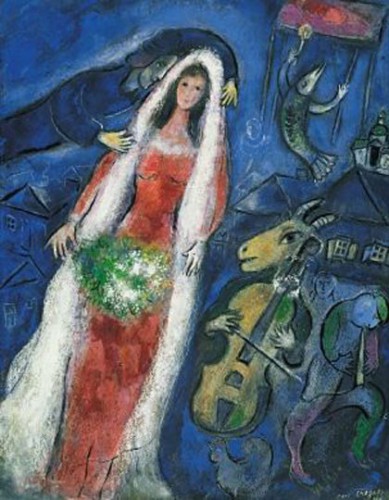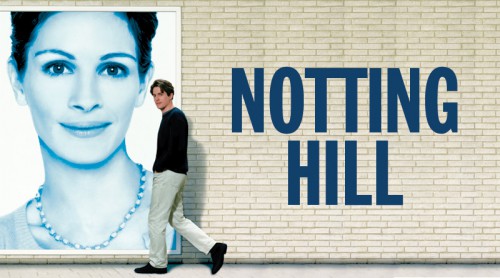
There’s this girl. She’s someone who can’t be mine, and uh… it’s as if I’ve taken love heroin and I can’t ever have it again. I’ve opened Pandora’s Box and there’s trouble inside.
If Hugh Grant vowed to collaborate exclusively with writer Richard Curtis (Four Weddings and a Funeral, Love Actually) for the rest of his career, the rom-com world would perhaps recover the stability it has sought for the better part of the past decade and a half. Curtis’ ability to present the humorous ills of love with allegorical excellence, marries splendidly with Hugh’s boyish but bold delivery of lines. Together they produce the perfect balance of rom and com.
Curtis’ most spectacular illusions come in his construction of dialogue. With his words he paints relatable happenings on an un-relatable canvas. It’s an effective recipe. The above quote is William Thacker’s (HG) lamentation on the thrills and abjection of an out of reach love. Tell me it isn’t a foolproof description of a situation everyone can relate to! This line from the deep end of Thacker’s soggy, melancholy heart summarizes the film’s premise well.
Notting Hill begins with a Hugh Grant monologue (don’t most Hugh Grant movies?) where his character, William Thacker, explains his lifestyle in a quaint, hip neighborhood in London, Notting Hill. He was once married, but his wife left him in favor of a man who looks like Harrison Ford, and he now lives a humbled life, walking every morning what he calls the daily “hopeless walk” to work.
Work is maintaining a small travel bookstore that he owns. It’s whimsical and inviting until you realize its entire inventory consists of only travel books. His life remains dull until one Wednesday, Anna Scott, the world’s most famous and most beautiful actress, stumbles into his shop. Is there any better retreat for a famed starlet than a bookstore that nobody shops at? Thacker tries, somewhat successfully, to keep his cool around Miss Scott. He avoids the, “You’re Anna Scott!” type lines that most of us would blurt out in the presence of an idol, and Anna appreciates that. She’s softened by his charm when Thacker boldly, yet nicely stops a potential shoplifter. But she’s Anna Scott, so it takes more than a little charm to reel her in.
As fate would have it, they would meet again only minutes later when Thacker, returning from a beverage run, clumsily crashes into Anna, spilling orange juice all over the both of them. Now they are both actually and symbolically messy together. This mess gives them a real shot at knowing each other. He invites her to his flat, stumbling over his words, promising that she could get cleaned up in no time. She, semi-reluctantly, accepts the invite. Instead of cleaning up though, she puts on a completely new outfit, restoring the publicly known Anna Scott.
With the half the mess hidden, Thacker knows that, apart from on the silver screen, he may never see this woman again. So he does what he does best. He talks. He talks in a way that I can only describe as elegantly embarrassing. In attempt to keep her stationary for a minute longer he offers her just about every food and beverage item in the house:
Would you like something to eat? Something to nibble? Apricots, soaked in honey? Quite why, no one knows, because it stops them tasting like apricots and makes them taste like honey… and if you wanted honey, you could just… buy honey, instead of apricots. But nevertheless they’re yours if you want them.
Here Thacker puts on a clinic on how to execute the perfect anxious bypass of vulnerability. Too afraid of what might happen when the words behind his honest desires hit the air, he masks it with an analogy, hoping that it will do the heavy lifting for him. Why would anyone want to buy apricots soaked in honey? All it does is make the apricot taste exactly like honey. If you want honey, then buy the damn honey. Thacker wants Anna, not her admiration for being that charming English man she met while promoting a film.
 Somehow, the apricots soaked in honey debacle earns Thacker a goodbye kiss from Miss Scott. Perhaps we can chalk this up to a Hollywood allowance necessary to propel the story where it’s going next. His dismal luck seems to finally be flaming out. Things go well with Anna, but not so much better than, say, a middle school boy who is having a good time flirting with the class beauty. Neither of the two ever communicates anything of real worth to each other, except for one instance where Anna is having dinner with Thacker and his gang. Anna speaks on the trials of living in the spotlight, of having to win the comparison game with other women, and how someday, not long off, she will be identified as a woman who looks like she may have been a bit famous years ago. Her brief vulnerability earns her about 30 seconds of empathy at which point the entire party, her included, laugh it off. How damaging. A woman who lives her life distanced from the rest of the world attempts to chew up that space, but the world immediately asks for it back.
Somehow, the apricots soaked in honey debacle earns Thacker a goodbye kiss from Miss Scott. Perhaps we can chalk this up to a Hollywood allowance necessary to propel the story where it’s going next. His dismal luck seems to finally be flaming out. Things go well with Anna, but not so much better than, say, a middle school boy who is having a good time flirting with the class beauty. Neither of the two ever communicates anything of real worth to each other, except for one instance where Anna is having dinner with Thacker and his gang. Anna speaks on the trials of living in the spotlight, of having to win the comparison game with other women, and how someday, not long off, she will be identified as a woman who looks like she may have been a bit famous years ago. Her brief vulnerability earns her about 30 seconds of empathy at which point the entire party, her included, laugh it off. How damaging. A woman who lives her life distanced from the rest of the world attempts to chew up that space, but the world immediately asks for it back.
Anna eventually must go home, back to her paper-thin world of pretend movie sets in America. When this day comes, Thacker has an unpleasant meet with Anna’s boyfriend, whom he had never heard a word about. Yet, still, Thacker nor Anna say anything more than a lifeless sorry and goodbye.
Time passes, presumably a year or so. Thacker is back to his daily, hopeless walks to work, dreaming about a woman he once loved, still loves, but cannot have. Anna climbs back into her shell, hardened and separated from the world. But their paths remain messily tangled together. They will interact again, and they will separate again, the tensions of the unsaid still remaining. Then another year or so passes, and she’s back in London once more to make a film. At this point in the film we realize this is their last shot; a lot of damage has been done, both Thacker and Anna have been hurt badly. If reconciliation is to come, it must happen now, and there is only one way for it to begin.
Thacker visits her set, but he leaves before she can speak with him, so Anna flips the script. She goes back to where it all began, Thacker’s bookstore, in attempt to metaphorically hit the restart button and do what Thacker never did. She asks for his heart. After nearly three years (three years!) of misunderstandings and miscommunication Anna’s heart melts, she gets vulnerable, and Thacker says no. He can’t bear to be rejected by her again. Then she delivers the line of the year, in attempt to humanize the situation:
And don’t forget, I’m also just a girl, standing in front of a boy, asking him to love her.
I’ve taken a drawn-out approach to highlighting the vitality of vulnerability in Anna and Thacker’s relationship. Why? One, it mirrors the film’s timeline; two, because being vulnerable is hard. It’s painful and never quick, and to be, well, vulnerable, I can relate. Which is my-apricots-soaked-in-honey way of saying, I struggle to be me. When personal vulnerability is absent, I often find that the deepest, darkest voids in my life are filled with regret. It’s a regret nurtured by a forgetfulness to admit, as Anna puts it, “The fame thing isn’t really real.” Of course, I am not famous, but I like to think that I can empathize with Anna here, especially in the area of friendship. In my relationships, with co-workers, family, friends, etc., a false bravado can often creep into my psyche. Once there, it speaks to me. “Here is your shield,” it says, “Lift it up. Let them know you are in control, and do not, under any circumstances, let them in!” This nasty habit gives me the power to hide who I really am with a facade of who I believe can protect me the most. Very Dr. Jekyll and Mr. Hide. Like a bull in a China shop, I create interpersonal wreckage, pummeling over those I love the most. And restriction from vulnerability discourages apology. Here I can identify with Patty Griffin’s ballad, A Long Ride Home: “Forty years of things you said you wished you’d never said/ How hard would it have been to say some kinder words instead?” It’s a simple stanza, but Patty asks a question that I have toiled with too often. To struggle being vulnerable is to struggle being genuine.
Vulnerability never promises happy endings. So why allow it? Why subject yourself to any uncertainties? Why give up control? I cannot, in good conscience, judge the fictional Thacker or Anna because I too am a addict to control. To give that up is, well, to be weak. But if Notting Hill tells us anything it’s that when we seek control, we crash. DZ quoted Brene Brown on this a few years back:
Vulnerability is indeed the center of difficult experiences like fear, disappointment and shame, but it is also the birthplace of love…
Vulnerability certainly is the birthplace of love in regards to our relationship with God, imperative to an uncensored view on Grace (2 Corinthians 12:1-10). If our relationship with the creator of the universe is enhanced by vulnerability, then won’t our relationships with others not also grow deeper and more abundant with vulnerability? Will vulnerability not also be the birthplace of our love for each other (John 13:34-35)?
William Thacker and Anna Scott’s story does not end with Thacker’s rejection. With vulnerability their relationship simply became just that, a relationship. From the guy who professes to love a good sob story, I do confess that I thirst for the happy endings, on the screen and in life, from time to time. For us, vulnerability may never equate to Thacker and Scott’s Hollywood ending, but I can say, assuredly, that it will push us the right direction.
http://https://www.youtube.com/watch?v=w2I6lb-P29s

COMMENTS
2 responses to “Mining Netflix: Vulnerability on Notting Hill”
Leave a Reply















Love this, one of my personal favorite rom-coms…it’s good (sad) that the experience of an out of reach love is so universal, as is Thackers rejection of her I think. Our mistrust of being loved that makes the gospel such a difficult to accept offer…at least for me. Thanks!
Very true! You’re welcome, and thank you!